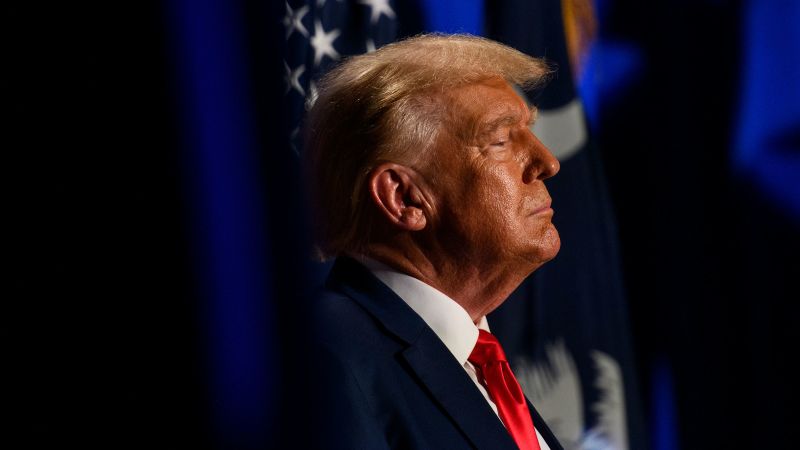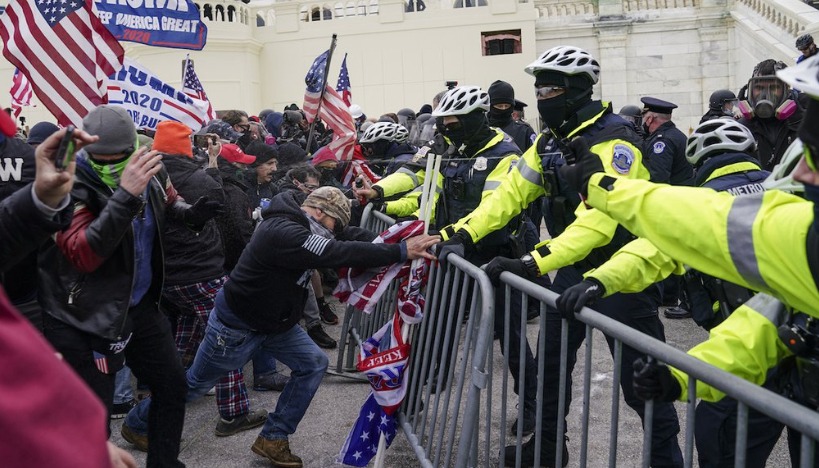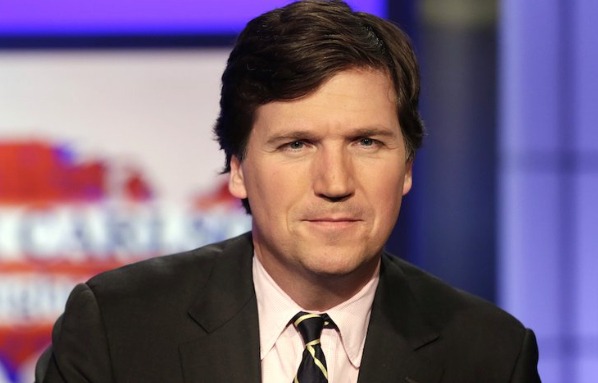Donald Trump’s Legal Battle: A Desperate Attempt to Avoid Conviction and Secure a Comeback
Donald Trump and his legal team are leaving no stone unturned in their efforts to discredit and delay the trial over his alleged attempt to overturn the 2020 election. What started as a fight to avert criminal convictions has now become indistinguishable from his presidential campaign. Here’s what you need to know:
1. Relocating the Trial: Trump’s attorney is vowing to petition for the trial to be moved from Washington, DC, arguing that a local jury won’t reflect the “characteristics” of the American people. This move is seen as an attempt to gain an advantage and ensure a fair trial.
2. Running Out the Clock: As prosecutors push for a speedy trial, Trump’s legal team plans to drag out the process for years, potentially extending it past the 2024 election. This strategy aims to buy Trump more time and create a narrative that he is being targeted by the Biden administration.
3. Tarnishing the Trial: Trump is demanding the recusal of the judge assigned to his case, launching a series of attacks on the process. While these assaults may not hold up legally, they serve to reinforce his narrative of being a victim of political persecution.
4. Delegitimizing Institutions: Trump’s efforts to undermine the trial align with his long-term strategy of delegitimizing institutions that challenge his power. From the courts to the Justice Department, he seeks to discredit any entity that contradicts his narrative.
5. Ramifications for the 2024 Election: The precarious nature of Trump’s position after his third indictment is sinking in, and the implications for the 2024 election are widening. As the front-runner for the Republican presidential nomination, his rivals face a delicate balancing act in capitalizing on his plight without alienating primary voters.
6. Potential Testimony: Former Vice President Mike Pence has not ruled out providing testimony in a Trump trial if compelled. This scenario would be unprecedented, with a vice president testifying against his ex-running mate.
7. Barr Dismisses Claims: Trump’s former Attorney General, William Barr, has dismissed the argument that Trump was exercising his right to freedom of speech in challenging the election result. Barr, who previously stated there was no evidence of widespread voter fraud, has also expressed willingness to appear as a witness at the trial.
8. Criticism from Within the GOP: Florida Governor Ron DeSantis, battling to maintain his position as the No. 2 Republican in primary polls, has criticized Trump’s false claims about election fraud as “unsubstantiated.” While still accusing the Biden administration of weaponizing justice against Trump, DeSantis acknowledges Joe Biden as the rightful president.
As the legal battle intensifies, Trump’s desperation to avoid conviction and secure a political comeback is becoming increasingly apparent. The outcome of this trial will have far-reaching implications for both Trump’s future and the 2024 election.The Fast-Moving Developments Since Trump’s Indictment: A Monumental Criminal Trial in American Political History
The recent developments following Trump’s indictment last week are providing a glimpse into what could be one of the most significant criminal trials in American political history. Not only does this case involve Trump’s plea of not guilty to mishandling classified documents and charges related to a hush money payment, but it also highlights the deepening divide in our nation’s politics.
Unprecedented Circumstances Surrounding Trump’s Case
While it’s not uncommon for defense teams to use various legal tactics to benefit their clients, Trump’s case is unlike any other. As a former president running for another term in the White House, his visibility and power make this trial unique. What’s more, Trump is using his fame and influence to launch a vitriolic campaign outside the courtroom, further eroding public confidence in the justice system. It’s becoming increasingly clear that his legal strategy is intertwined with his political agenda, dominating an election consumed by his criminal exposure and the possibility of convictions.
Trump’s Threatening Rhetoric and Its Impact
Trump’s recent posts on his Truth Social network reveal a furious state of mind. He demands the recusal of Judge Tanya Chutkan, who is presiding over the case, and a change of venue. He goes as far as calling special counsel Jack Smith “deranged” and claiming that the US is being “destroyed.” In a speech in South Carolina, Trump even demands that Senate Republicans do more to protect him. This threatening rhetoric is already affecting pre-trial preparations, as both parties engage in a battle of words before the judge decides on a trial date.
Prosecutors Seek Limits on Trump’s Publicizing of Evidence
Prosecutors have asked the court to impose strict limits on how Trump can publicize the evidence that will be presented during the discovery process. They argue that Trump’s previous public statements about witnesses, judges, attorneys, and others warrant a protective order to prevent any further interference. Trump’s team, on the other hand, seeks to extend the deadline for filing on this matter. The prosecutors’ filing includes a screenshot of a Truth Social post in which Trump warns, “IF YOU GO AFTER ME, I’M COMING AFTER YOU!”
Trump’s Defense Strategy and Attempts to Delay the Trial
Trump’s lawyer, John Lauro, argues that the special counsel is withholding evidence that could speak to the innocence of President Trump. Lauro also reveals that he plans to relitigate the 2020 election as a way to challenge Smith’s charges. Trump’s goal is to delay and prolong the trial, ensuring that the country won’t have a final answer on his alleged culpability until after the election. If Trump wins the White House in 2024, he could potentially freeze federal prosecutions against him or mitigate any guilty verdicts.
The Potential Ramifications of Trump’s Defense
Lauro’s defense strategy raises concerns about the future of American politics. It opens the door for any politician to create an alternative reality that disregards the facts of an election outcome and take actions to retain power. This possibility is alarming and could have far-reaching consequences for our democracy.
Barr’s Perspective on the Case
Even William Barr, a conservative Republican and former Trump defender, believes that Smith’s case does not violate the First Amendment. While he acknowledges the challenges it presents, Barr seeks to clear up any confusion surrounding the matter.
As the developments in Trump’s case continue to unfold, it is clear that this trial will have a profound impact on American politics and the justice system. The outcome will shape the future of our democracy and determine the accountability of those in power.Former New Jersey Governor and 2024 presidential candidate Chris Christie believes that jurors in Washington, D.C. can be fair to former President Trump. This statement comes amidst claims by Trump’s team that he cannot receive a fair trial in the nation’s capital. However, Christie disagrees and expresses his confidence in the American people and their ability to listen fairly and impartially. While some suggest a change of venue, legal experts argue that this would undermine the integrity of the legal system. Christie’s perspective offers a different viewpoint in the ongoing debate surrounding Trump’s trial.Former federal prosecutor Chris Christie believes that jurors in Washington, DC can be fair to former President Donald Trump. He also argues that Trump’s post-election conduct is not protected by the First Amendment’s guarantee of free speech. Christie points to Trump’s failure to immediately intervene and stop the Capitol riot on January 6, 2021, as evidence of his culpability. According to Christie, Trump simply sat in the White House Dining Room, enjoying his meal while watching the chaos unfold.
Unveiling Trump’s Strategy: Undermining Credibility of Election Subversion Trial
In the wake of the 2020 United States Presidential Election, the country finds itself embroiled in a highly contentious trial centered around allegations of election subversion. Former President Donald Trump, who continues to wield significant influence within the Republican Party, has been accused of inciting an insurrection on January 6th, 2021, when a mob of his supporters stormed the Capitol building. As the trial unfolds, it becomes increasingly evident that Trump’s strategy is to undermine the credibility of the proceedings, casting doubt on the legitimacy of the trial itself.
One of the key tactics employed by Trump and his legal team is the perpetuation of baseless claims and conspiracy theories surrounding the election. Despite numerous court rulings and the affirmation of the election’s integrity by the Department of Justice and the Cybersecurity and Infrastructure Security Agency, Trump has persistently propagated the false narrative that the election was stolen from him. By sowing seeds of doubt in the minds of his supporters, he aims to create an environment where any unfavorable outcome of the trial can be dismissed as part of a larger conspiracy against him.
Furthermore, Trump has consistently attacked the credibility of the trial by questioning the impartiality of the process. He has criticized the decision to hold the trial after his presidency, arguing that it is unconstitutional and politically motivated. By framing the trial as a partisan witch hunt, Trump seeks to delegitimize the proceedings and rally his supporters against what he portrays as an unfair and biased trial.
Another aspect of Trump’s strategy is the utilization of his vast media presence and influence. Through his preferred medium of choice, Twitter, Trump has continued to disseminate his views and rally his base. Despite being banned from the platform following the Capitol attack, he has found alternative ways to communicate with his followers, such as issuing statements through his office or appearing on sympathetic media outlets. By maintaining a constant presence in the public discourse, Trump aims to shape the narrative surrounding the trial and maintain control over the perception of events.
Additionally, Trump has employed a legal strategy that focuses on procedural arguments rather than addressing the substance of the charges against him. His defense team has argued that the trial itself is unconstitutional, as he is no longer in office. While legal scholars have debated the constitutionality of the trial, Trump’s primary objective seems to be to divert attention away from the core issues at hand and instead focus on technicalities. By doing so, he hopes to create confusion and further undermine the credibility of the trial.
It is crucial to recognize the potential consequences of Trump’s strategy. By casting doubt on the legitimacy of the trial, he risks eroding public trust in the judicial system and the democratic process as a whole. If a significant portion of the population believes that the trial is nothing more than a political vendetta, it could further deepen the existing divisions within the country and hinder efforts to heal and move forward.
As the trial continues, it is imperative for the American public to critically evaluate the arguments put forth by both sides. It is essential to separate fact from fiction and to demand accountability from those who seek to undermine the credibility of the trial. The future of American democracy depends on the ability to uphold the rule of law and ensure that no individual, regardless of their position or influence, is above it.








